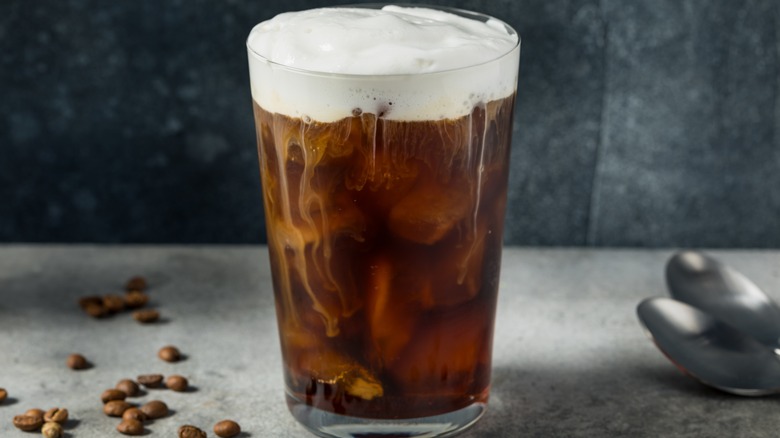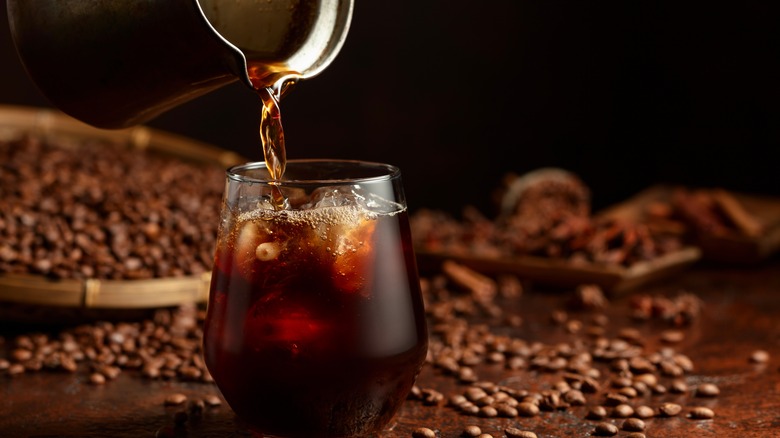How Much More Caffeine Does Cold Brew Have Than Iced Coffee?
At some point or another, we've all learned that cold brew and standard iced coffee are vastly different from one another. Whether this happened the easy way — finding out early on in your journey as a beginner to drinking coffee — or the hard way — drinking three cups of cold brew it thinking it was the same as iced coffee — the two types of coffee give their consumers very distinct experiences from one another, in large part due to the difference in caffeine between the drinks. On average, a 16-ounce cup of cold brew contains 205 milligrams of caffeine, a jump up from the average of 165 milligrams of caffeine that a 16-ounce cup of iced coffee has.
In the case of cold brew, that 205 milligrams mark is just over half of the amount of caffeine most healthy adults can safely drink per day, so having several cold brews per day can prove to be quite problematic. Furthermore, there are several outliers to the typical caffeine level among cold brew coffee variations that you'll find at coffee shops. Perhaps the best example of this is none other than the grande nitro cold brew – the most caffeinated cold drink at Starbucks — which contains 280 milligrams of caffeine.
What makes cold brew more caffeinated than standard iced coffee?
The discrepancy between the amount of caffeine in cold brew and other iced coffees stems from the ratio of coffee beans to water used in the cold brew process. Cordie Nelson, La Colombe's Market Trainer in Chicago and Texas, explained the difference in an interview with Real Simple, saying, "Cold brew is commonly brewed as a concentrate with a 1:5 ratio of beans to water, with the intention of diluting it with cold water before serving [...] Flash-chilling coffee is commonly brewed with a more traditional 1:17 ratio and a slightly tighter grind." This, along with cold brew typically having a longer steeping time during which the coffee and water interact, gives the drink a much stronger — albeit less acidic — overall taste than iced coffee.
With this in mind, beyond cold brew having a lot of caffeine, non-cold brew iced coffees have relatively little caffeine in them to begin with. Along with the low ratio of coffee beans within a standard iced coffee, the drink is also heavily diluted by the ice — both during the brewing process and in the cup. This makes it so the overall strength of both the coffee's flavor and caffeine is depleted by the time you're drinking it.

